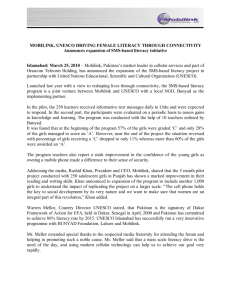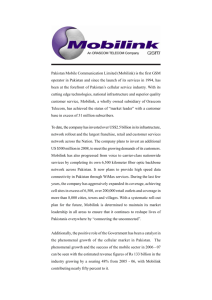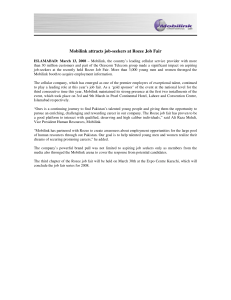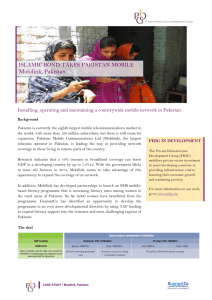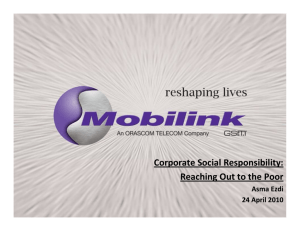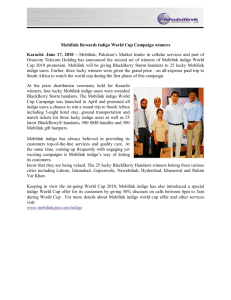UNESCO & MOBILINK, DRIVING FEMALE LITERACY THROUGH
advertisement
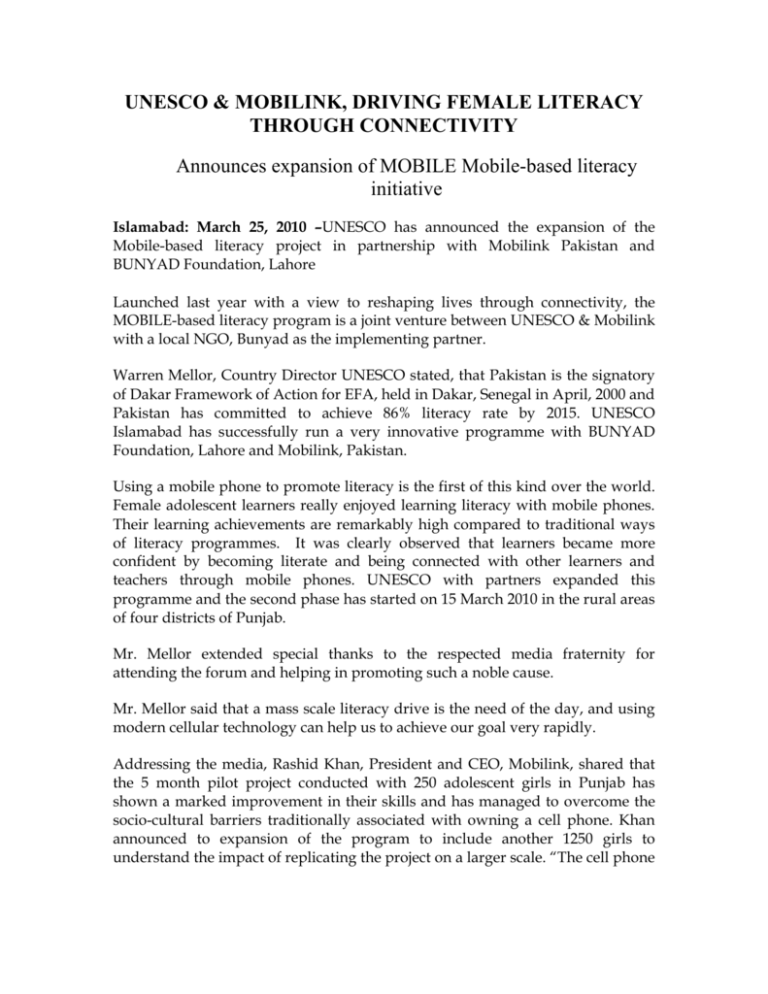
UNESCO & MOBILINK, DRIVING FEMALE LITERACY THROUGH CONNECTIVITY Announces expansion of MOBILE Mobile-based literacy initiative Islamabad: March 25, 2010 –UNESCO has announced the expansion of the Mobile-based literacy project in partnership with Mobilink Pakistan and BUNYAD Foundation, Lahore Launched last year with a view to reshaping lives through connectivity, the MOBILE-based literacy program is a joint venture between UNESCO & Mobilink with a local NGO, Bunyad as the implementing partner. Warren Mellor, Country Director UNESCO stated, that Pakistan is the signatory of Dakar Framework of Action for EFA, held in Dakar, Senegal in April, 2000 and Pakistan has committed to achieve 86% literacy rate by 2015. UNESCO Islamabad has successfully run a very innovative programme with BUNYAD Foundation, Lahore and Mobilink, Pakistan. Using a mobile phone to promote literacy is the first of this kind over the world. Female adolescent learners really enjoyed learning literacy with mobile phones. Their learning achievements are remarkably high compared to traditional ways of literacy programmes. It was clearly observed that learners became more confident by becoming literate and being connected with other learners and teachers through mobile phones. UNESCO with partners expanded this programme and the second phase has started on 15 March 2010 in the rural areas of four districts of Punjab. Mr. Mellor extended special thanks to the respected media fraternity for attending the forum and helping in promoting such a noble cause. Mr. Mellor said that a mass scale literacy drive is the need of the day, and using modern cellular technology can help us to achieve our goal very rapidly. Addressing the media, Rashid Khan, President and CEO, Mobilink, shared that the 5 month pilot project conducted with 250 adolescent girls in Punjab has shown a marked improvement in their skills and has managed to overcome the socio-cultural barriers traditionally associated with owning a cell phone. Khan announced to expansion of the program to include another 1250 girls to understand the impact of replicating the project on a larger scale. “The cell phone holds the key to social development by its very nature and we want to make sure that women are part of this revolution,” Khan added. In the pilot, the 250 learners received interesting and informative text messages daily in Urdu and were expected to respond. In the second part, the participants were evaluated on a periodic basis to assess gains in knowledge and learning. The program was conducted with the help of 10 teachers enlisted by Bunyad. It was found that at the beginning of the program 57% of the girls were graded ‘C’ and only 28% of the girls managed to score an ‘A’. However, near the end of the project the situation reversed with percentage of girls receiving a ‘C’ dropped to only 11% whereas more than 60% of the girls were awarded an ‘A’. The program teachers also report a stark improvement in the confidence of the young girls as owning a mobile phone made a difference to their sense of security.
